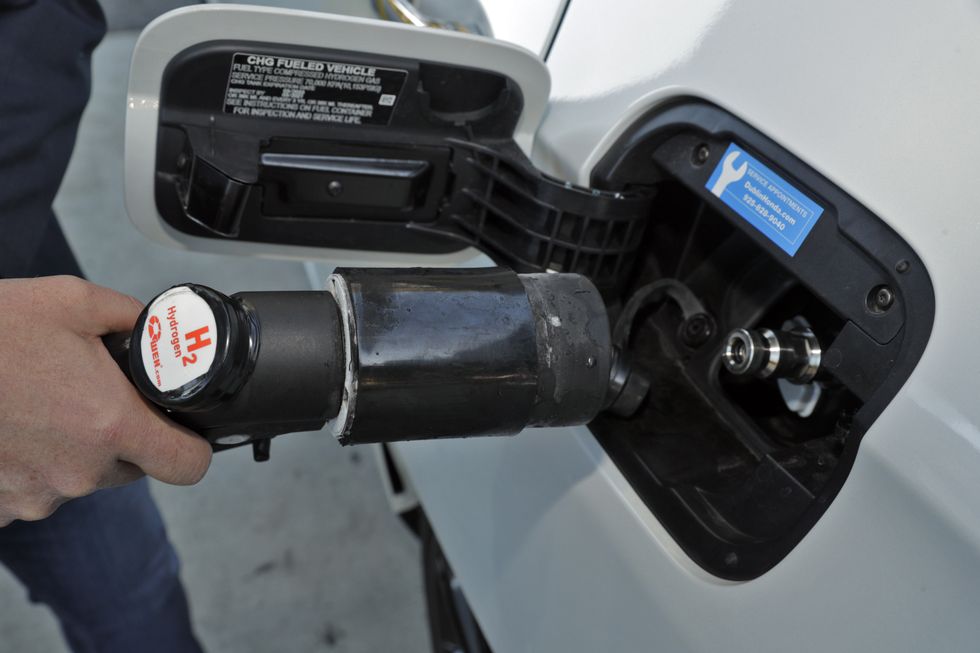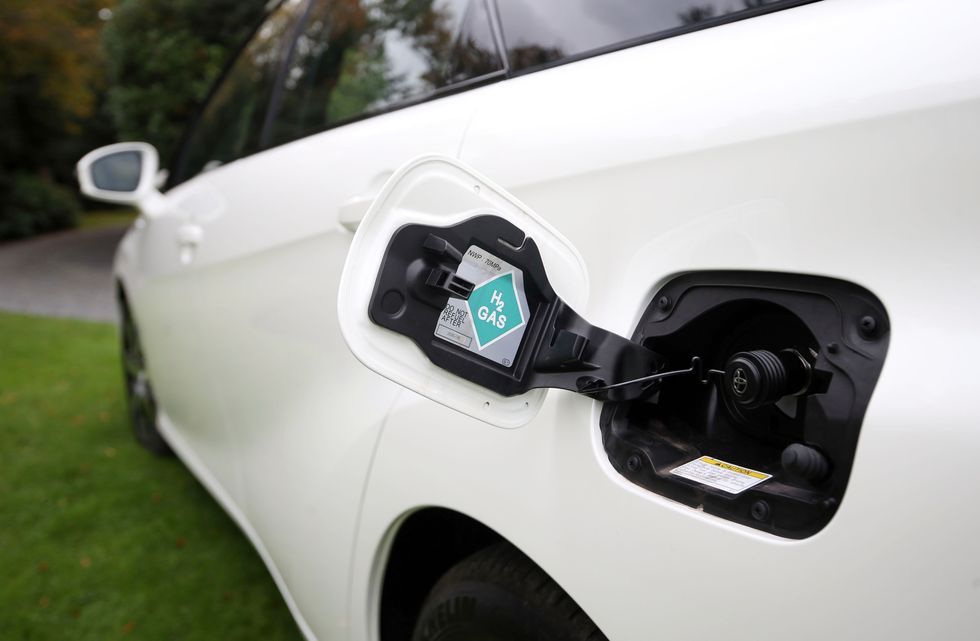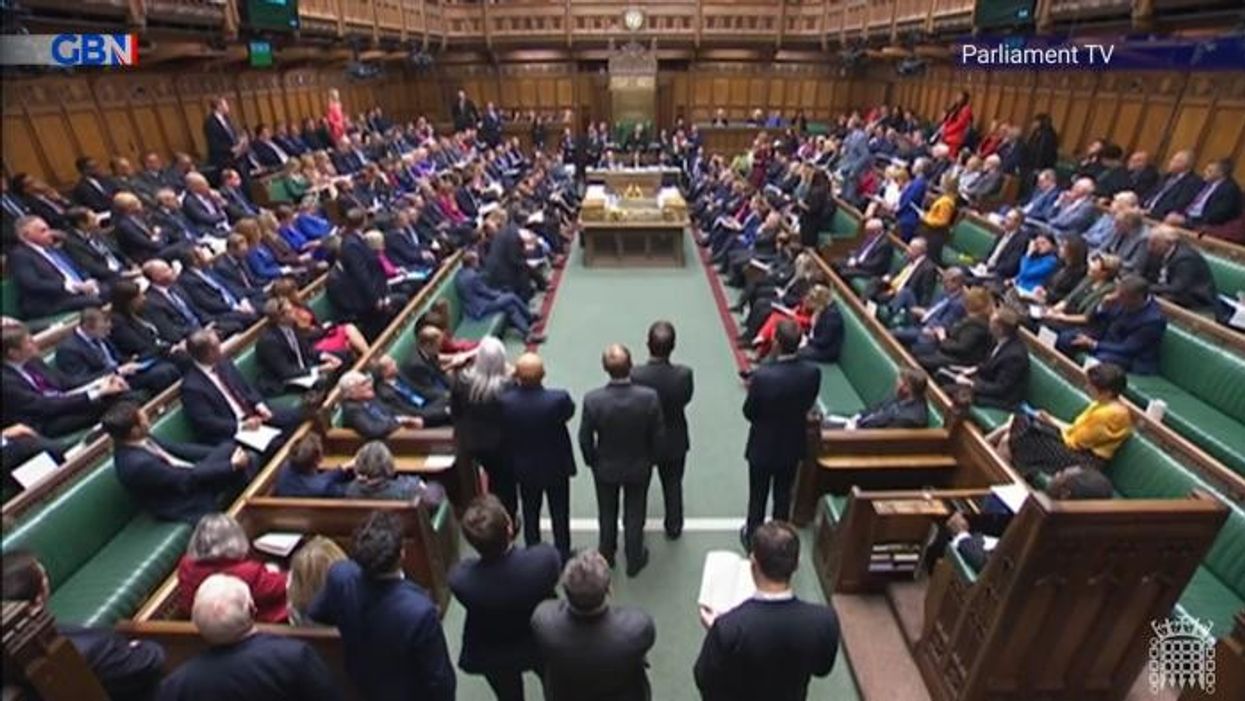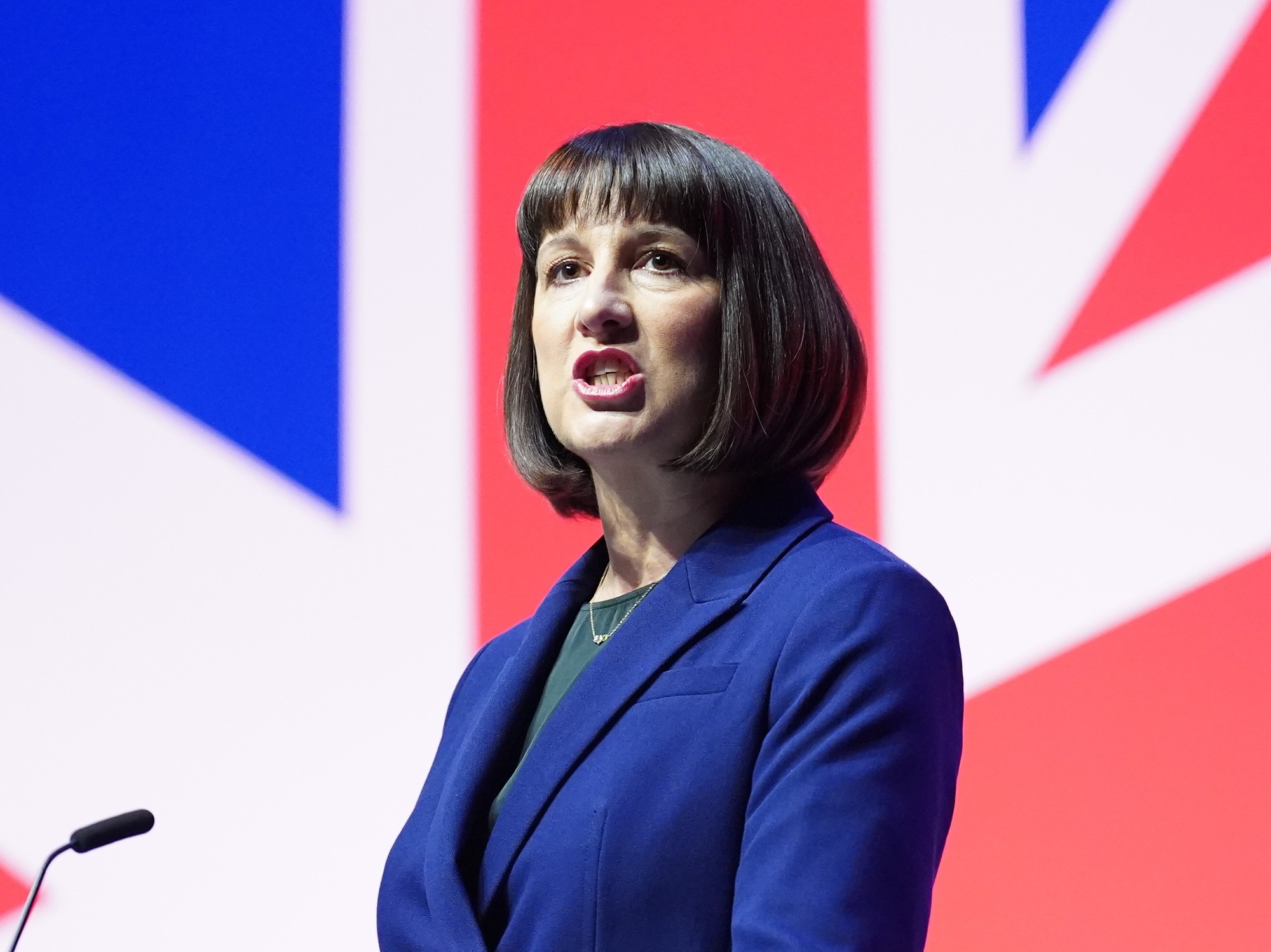'Even a small market share adoption could lead to a significant opportunity for component and vehicle suppliers'
Don't Miss
Most Read
Trending on GB News
Experts are considering whether hydrogen fuel cell cars are suitable for use on a larger scale and whether drivers would be interested in using such vehicles in the near future.
While many drivers become accustomed to electric vehicles, hydrogen fuel cell technology could become a major player in certain transport avenues, as well as helping to decarbonise the industry.
According to IDTechEx, it costs around 3p per mile to run an electric Tesla Model 3 compared to a hydrogen fuel cell electric vehicle (FCEV) Toyota Mirai which costs around 17p per mile to run, which is also more expensive than an equivalent petrol car at around 12p.
It will also depend by region, as some areas like Glasgow and the Tees Valley will be more suited for hydrogen vehicles, while other areas which are less connected, such as Cornwall and North Wales, will face greater costs and challenges.
Do you have a story you'd like to share? Get in touch by emailing motoring@gbnews.uk

The UK only has eight publicly accessible refuelling stations
GETTY
Dr James Edmondson, research director at IDTechEx, acknowledged that hydrogen vehicle sales had largely stalled since 2021, despite the fact that the hydrogen market is still thriving.
He said: “IDTechEx believes that FCEVs are not optimal for use in vehicles like cars, vans, or buses, where BEVs can largely meet the required duty cycle.
“Where FCEVs could be used is where the duty cycle is so demanding that BEVs will struggle to cope, and the route is either based at or travels between two hubs using green hydrogen for the applications mentioned above (not vehicular).
“Transport markets are large, so even a small market share adoption could lead to a significant opportunity for component and vehicle suppliers.
“While FCEVs might not be the best solution in an ideal world, a combination of specific use cases and supporting hydrogen applications could see some limited success for FCEVs.”
According to the December 2023 update of the Government’s Hydrogen Strategy, there are only eight publicly accessible refuelling stations across the UK.
These vehicles serve around 265 vehicles, including buses, HGVs, vans and cars, although private companies are looking to install new refuelling stations.
The Government has launched different funding projects including the £23million Hydrogen for Transport Programme in addition to the £270million Zero Emission Bus Regional Areas (ZEBRA) scheme.
There are plans to develop a number of new refuelling stations across the country with further plans to introduce sites in Newport, Tees Valley and Glasgow.
There are distinct plans from the Government to focus on the Tees Valley area to develop the national refuelling infrastructure.
The Tees Valley Hydrogen Hub was boosted by a £20million competition to “harness the power of hydrogen” and lower carbon emissions from transport in the area.
Experts have largely pointed to hydrogen vehicles as a suitable low-carbon alternative to electric vehicles, especially for heavier vehicles like HGVs and lorries.
LATEST DEVELOPMENTS:
- Drivers warned of ‘milky’ and ‘contaminated’ fuel causing car breakdowns as Sainsbury’s launch investigation
- Jeremy Clarkson 'cannot lavish enough praise' on supercar used in The Grand Tour: 'I bought one immediately!'
- Major cities forced to launch Low Emission Zones this year despite having UK's 'cleanest air quality'

The Toyota Mirai was one of the first hydrogen fuel cell passenger cars on the market
PA
Drivers with hydrogen fuel cell vehicles can benefit from faster refuelling times compared to electric, a longer range and the ability to carry larger weights.
Dr Edmonson questioned whether drivers would be able to make the switch to a hydrogen vehicle if the hurdles remain in the coming years.
He added: “However, transport markets are large, so even a small market share adoption could lead to a significant opportunity for component and vehicle suppliers.
“While FCEVs might not be the best solution in an ideal world, a combination of specific use cases and supporting hydrogen applications could see some limited success for FCEVs.”









